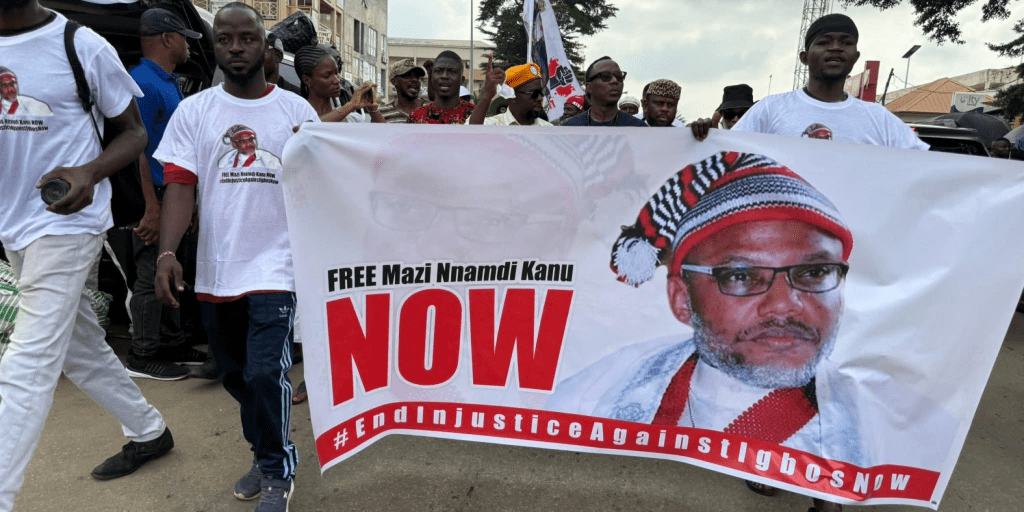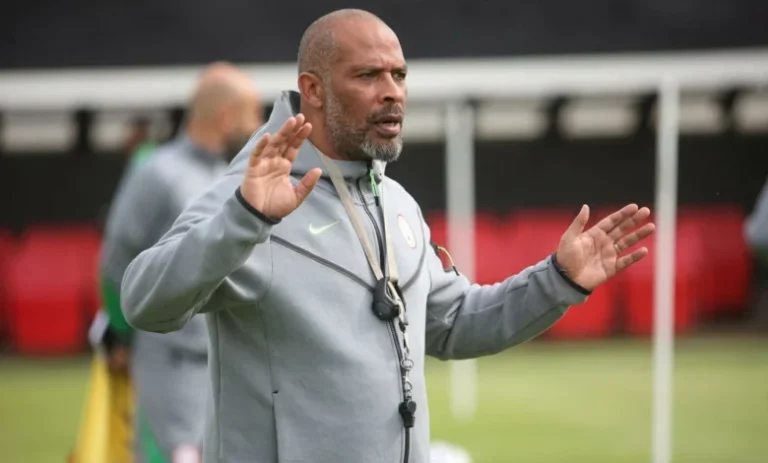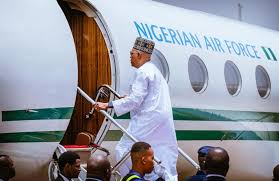
Normalcy has returned to Abuja, Nigeria’s capital, a day after security forces barricaded major roads to suppress a protest demanding the release of Nnamdi Kanu, leader of the Indigenous People of Biafra (IPOB).
On Monday, the city centre was thrown into chaos as protesters clashed with security operatives, disrupting traffic and halting early morning business activities across key locations, including Transcorp Hilton, Eagle Square, and the Three Arms Zone.
However, by Tuesday morning, a tour of the city showed that business, commercial, and social activities had resumed in full swing. The heavy police and military presence that dominated the streets on Monday had largely disappeared.
The protesters had vowed to continue their demonstrations until Kanu’s release from detention. The IPOB leader has been held since 2021, following his arrest in Kenya and extradition to Nigeria to face charges related to treason and separatist activities.
Despite a court order and police warning, human rights activist Omoyele Sowore led Monday’s protest, with demonstrators chanting, “Free Nnamdi Kanu now,” and “It’s our constitutional right to protest.” Others pleaded, “Don’t tear gas us,” before security operatives fired canisters to disperse the crowd.
Witnesses reported that some protesters continued chanting, “Tear gas cannot stop us,” as they fled the scene.
The protest, which began near Unity Fountain, spread to parts of Utako and the Federal Secretariat, forcing authorities to seal off all major access roads leading to sensitive government zones.
Security operatives had blocked entry to Unity Fountain, the main rally point, and barricaded surrounding streets, preventing both motorists and pedestrians from gaining access.
Heavily armed personnel were deployed around the Three Arms Zone, Aso Rock Villa routes, and Eagle Square to forestall further unrest.
In one incident near the Nigeria Union of Journalists (NUJ) secretariat in Utako, a combined team of police and soldiers fired tear gas to disperse a nearby crowd, even though the group was not directly involved in the protest. Panic briefly ensued as residents and onlookers scrambled for safety.
By Tuesday, the atmosphere had returned to calm, with commuters moving freely and shops, offices, and public institutions operating normally. Security patrols remained on standby, but the city appeared to have regained its rhythm after a tense start to the week.



